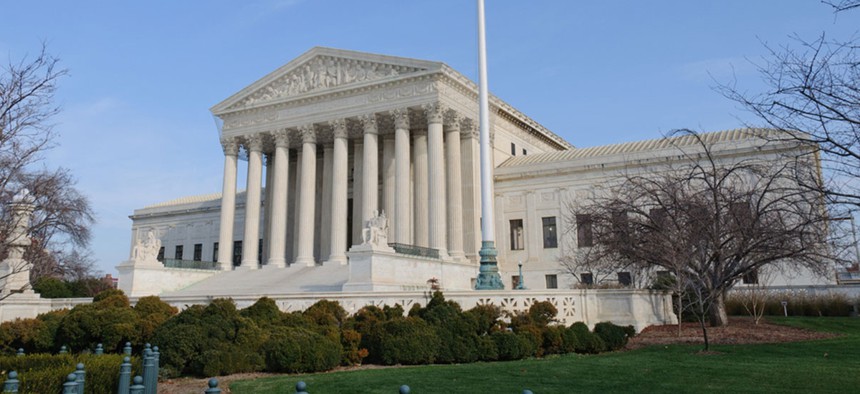
Flickr user Richard Gillin
Chief Justice John Roberts Rejects Plea to Block the EPA's Air-Pollution Rule
The U.S. Supreme Court denied a request by 20 states to block the agency’s mercury-emissions rule while lawsuits proceed.
The U.S. Supreme Court denied a request Thursday to block the EPA’s mercury-emissions rule while legal challenges proceed, handing a temporary victory to the the Obama administration and environmental groups.
Twenty states asked lower courts to block the rule’s enforcement while their case against the EPA is ongoing. The D.C. Circuit Court of Appeals denied their motion in December, and the states turned to Chief Justice John Roberts, who oversees stay requests from the D.C. Circuit. Although Roberts can refer those requests to the entire Supreme Court for consideration, he rejected it on his own authority as the circuit justice.
The EPA adopted its long-awaited emissions rule in February 2012, targeting mercury and other toxic byproducts of fossil fuels emitted by power plants. Agency officials estimated the new regulations would reduce those emissions by 90 percent and prevent about 11,000 premature deaths each year.
Under the Clean Air Act, the EPA has broad authority to regulate residual emissions from power plants and other major sources of air pollution when the agency considers it “appropriate and necessary.” Almost two-dozen states challenged the rule in court, arguing the EPA failed to consider the financial burden of its regulations when it decided to intervene. The EPA countered that while it did not weigh that burden at the beginning of its process, the agency did consider it multiple times thereafter.
A sharply divided Supreme Court sided with the states last June in Michigan v. EPA and ordered the agency to weigh costs when making its initial decision to regulate.
“It is not rational, never mind ‘appropriate,’ to impose billions of dollars in economic costs in return for a few dollars in health or environmental benefits,” Justice Antonin Scalia wrote for a 5-4 majority.
After the Court’s ruling, the case returned to the D.C. Circuit as the EPA conducts a full cost review of the mercury-emissions rule. While that review takes place, the states hoped to block federal regulators from enforcing it, citing the financial impact of compliance.
The Court granted a request to halt enforcement of the EPA’s Clean Power Plan last month in a 5-4 vote in West Virginia v. EPA, dealing a serious blow to the Obama administration’s efforts to curb climate change. Both Roberts and Scalia voted for a stay then; granting it was one of Scalia’s last official acts as a justice before his death on February 13. The four justices from the Court’s liberal wing dissented without comment.
But a similar intervention didn’t occur in Michigan v. EPA. Roberts’ refusal to grant a stay will allow the Obama administration to rein in toxic emissions while the EPA tabulates the rule’s cost. The agency’s review is expected to be finished in April.
NEXT STORY: The Best Leaders Know How to Pass the Torch







